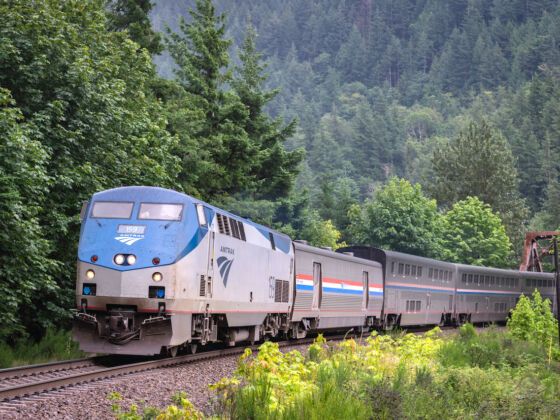This is the Climate Win, the most positive sustainability news around the world every week.
If you follow the news, you know that a major infrastructure bill is inching its way towards approval in the US Senate — following passage by the House of Representatives of its own version. If you want to travel sustainably, you’ll be thrilled about two seriously major developments in the finalized bill.
